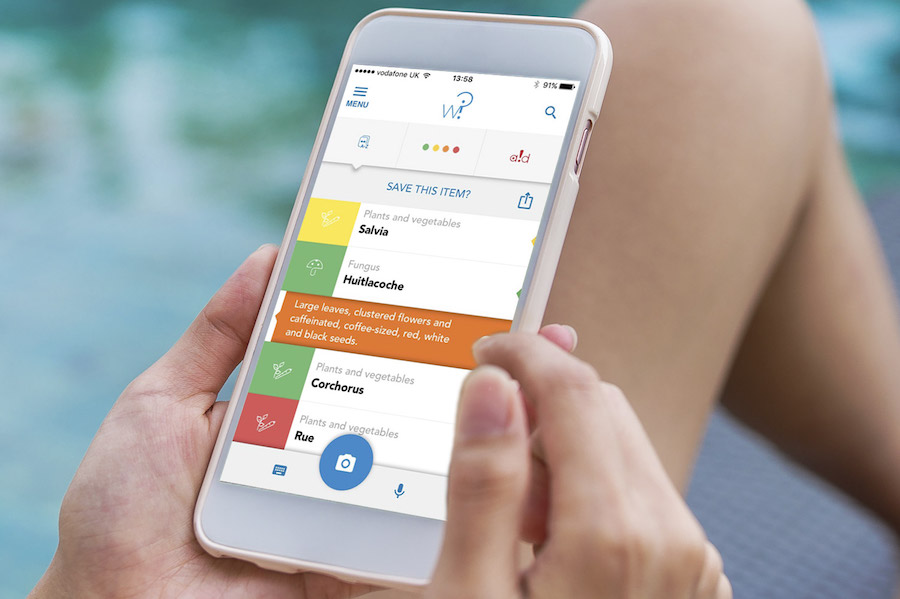Whatsinit? app helps those on restricted diets look up ingredients
How living with sickle cell anaemia inspired British mum to launch a new food-search app.
Are you one of the tens of millions of people living with a food allergy, intolerance or sensitivity – or just likes to know exactly what they’re eating? Then you might want to check out Whatsinit? a new app designed to make life easier for anybody unsure whether what they’re eating is ‘safe’ or might trigger symptoms.
You can scan food labels to look up specific ingredients, check whether certain ingredients might be known by different names and look up nutritional information, among other features. You can personalise the findings too, colour-coding them as ingredients to avoid, or follow some of the pre-set diet plans designed for people avoiding specific foods.
It was developed by husband and wife team Temi Alanamu and Rob Renton. Temi has the genetic blood cell disorder sickle cell anaemia, and keeping a close eye on her diet plays an important role in helping her manage her health.
Here, 32-year-old Temi, from London, talks to us about the inspiration behind the idea and living with sickle cell anaemia…

Can you tell us a little about what inspired you to launch your app?
“My husband Rob and I had the idea for Whatsinit? in 2015, when we were out of work and financial constraints forced us to buy and eat cheap, processed foods. Since I have sickle cell anaemia, I had always been careful about what I ate and tried to eat fresh, nutritious food.
“Having to eat a lot more processed food was a bit of a shock and we would scrutinise every ingredient on the foods we bought, to make sure we understood exactly what I was eating and ensure none of the ingredients would do me any harm.
“But the more we read ingredients labels, the more we realised we had no idea what many of the ingredients in these foods meant, because a lot of it wasn’t actually food. So we decided to build an app that helped us, and others, quickly and easily identify food ingredients. We got together with professionals in the food and health industry and, over two years, built it up.”
Do you think things are getting better for people with special dietary needs?
“It is definitely getting better. Every day consumers are getting more knowledgeable about food. They understand what’s good for them and what isn’t, and food manufacturers and restaurants are staring to recognise this.
“Coffee shops are now offering vegan lattes that use plant milk instead of dairy, and free-from foods is one of the fastest growing [areas] in the food industry. [But] there is still a lot of work to be done because food labelling is currently very obscure.”

Whatsinit? app
Can you tell us more about living with sickle cell anaemia?
“Sickle cell anaemia is a genetic condition that affects around 12,000 people in the UK alone, mainly from an Afro-Caribbean background. Put simply, it means I am always anaemic, have diminished immunity and some of my red blood cells are unusually shaped (sickled). Sometimes, these cells get sticky, attach to one another and obstruct my veins, causing severe pain.
“Like the millions of other suffers around the world, my sickle cell anaemia means I have to live a life of moderation. I can’t do strenuous exercise, so I probably will never run a marathon or climb Everest. I can’t be too hot or too cold or become very stressed or very anxious for an extended period of time.
“If I do, my red [blood cells] will stick together and I will suffer something called a crisis, which is characterised by extreme pain all over my body and severe anaemia, which sometimes requires a blood transfusion.”

Exercise, healthy eating and relaxation all play a part in Temi’s self-care regime
How do you take care of your wellbeing?
“I have to be really careful about what I eat because a good diet is crucial to my health and wellbeing. I have always tried to stick to eating only fresh fruit, vegetables and meat, and because snacking on the wrong things could have such serious repercussions for my health, packaged meals have never really been a tempting option.
“Exercise and relaxation are also great for managing sickle cell. I used to do yoga and Pilates, which is good to both work your muscles and relax. Although I have to confess, since having a baby a year ago, I now try to exercise at home as much as I can.
“Playing with my daughter is also very good exercise, especially now she can run and hide. Carrying a 20lb baby around most of the day also does wonders for toning muscles! These activities keep me happy and relaxed, and when I am relaxed and stress-free, I am less likely to suffer a crisis.”
For more information, see whatsinitapp.com
The Press Association
Latest posts by The Press Association (see all)
- 8 things your feet can tell you about your health - January 8, 2025
- 9 ways to look after your emotional health better in 2025 - January 7, 2025
- EastEnders fans to vote on storyline for the first time in 40th anniversary week - January 7, 2025
- Aldi beats rival Lidl as cheapest supermarket of 2024 - January 6, 2025
- All the benefits of lifting weights beyond bigger muscles - January 6, 2025





















